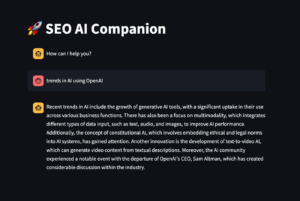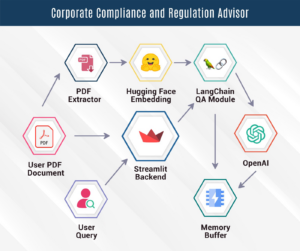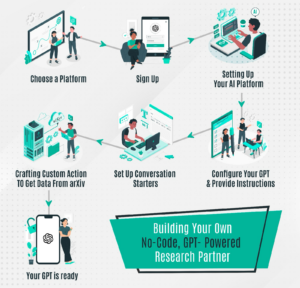
If you’re seeking funding for your tech venture, AI startup accelerators could be a great option. These programs provide mentorship, resources, and networking specifically tailored for businesses in the AI sector. However, they might not be suitable for everyone. In this blog post, we will explore alternatives to AI startup accelerators that can help foster your growth while avoiding the common restrictions found in traditional accelerators.
Consider options such as incubators, grant programs, and coworking spaces specifically designed for AI startups. We will discuss the unique benefits and resources each of these alternatives offers, as well as the limitations of traditional accelerators. If you are looking for more flexibility, personalized guidance, or different funding methods, this guide will assist you in finding the best path for your AI startup journey.
Top Alternatives to AI Startup Accelerators
AI startups have a variety of options beyond traditional accelerators that can foster their growth and support their development. These alternatives offer flexibility while providing essential resources.
One notable alternative is AI incubators, which offer mentorship and support with less commitment than accelerators. They focus on longer-term development, helping startups refine their ideas into sustainable business models.
Another valuable option is venture studios, also known as startup factories. These entities actively assist in building new companies by providing operational support, team recruitment, product refinement, and funding opportunities. By retaining equity, venture studios significantly enhance the potential of AI startups through their hands-on involvement.
AI-focused co-working spaces create a collaborative environment where startups can benefit from advanced technology, networking opportunities, and workshops. This atmosphere encourages innovation and partnerships, fostering overall growth.
Moreover, AI startups can tap into private and public grants designed for technology and innovation. Such funding allows founders to maintain equity while securing the necessary resources, with government programs often eager to support AI initiatives.
Additionally, forming industry-specific partnerships with established tech companies can yield mentorship and market access. These collaborations can lead to pilot projects that validate technology and broaden market reach.
Finally, online educational platforms focused on AI offer founders the knowledge and skills needed to thrive in a competitive landscape. These resources provide critical insights and expert guidance.
By exploring these alternatives, AI startups can expand their horizons while discovering innovative paths to achieve their goals outside traditional AI startup accelerators.
Top Alternatives to AI Startup Accelerators
AI startup accelerators offer structured support, but various alternatives can also guide startups toward success in the AI market. Each option presents unique benefits tailored to different needs.
Incubators play a crucial role in the early development stages by providing mentorship, networking opportunities, and office space with flexible timelines, making them a strong alternative to fixed-structure accelerators.
Co-working spaces for tech startups foster collaboration and networking. These environments encourage entrepreneurs to share expertise and resources, promoting growth and innovation.
Another viable option is self-funding or bootstrapping. This approach allows AI startups to maintain complete ownership and control by utilizing personal funds, particularly if they can generate revenue early on.
Strategic partnerships with established companies can also benefit AI startups. These collaborations enhance market entry and technology development by providing valuable resources and expertise.
Moreover, online courses and workshops in AI and entrepreneurship offer essential skills without the long-term commitment of an accelerator. Finally, angel investors and venture capital firms provide targeted funding to support startup growth without the constraints of accelerator programs.
While AI startup accelerators are beneficial, exploring alternatives like incubators, co-working spaces, bootstrapping, partnerships, courses, and direct investments can lead to greater success for some startups.
Understanding the challenges AI startups face in accelerators is vital for navigating the dynamic market.
Key Challenges for AI Startups in Accelerators
AI startup accelerators provide numerous benefits but also pose significant challenges that can hinder growth. Understanding these obstacles is crucial for startups considering accelerator programs.
One of the main challenges is limited funding. Many startups discover that the investments available do not adequately cover their operational needs, particularly in the fast-moving AI industry where resources are essential for development and scaling. This funding gap can create obstacles for innovation.
Navigating regulatory complexities further complicates matters. As startups work to innovate, they must also ensure compliance with ever-changing AI regulations. This can distract them from their primary objectives and slow their overall progress.
Additionally, the fierce competition within accelerator cohorts can impose pressure on startups. With many companies vying for the attention of mentors and investors, standing out becomes a significant challenge.
Moreover, the tech sector’s demand for rapid scaling can lead startups to make hasty decisions, jeopardizing the quality of their products and services. These issues underscore the necessity for enhanced support tailored specifically for AI startups.
Top Alternatives to AI Startup Accelerators
AI startups seeking growth beyond traditional models can explore several valuable alternatives that provide resources, mentorship, and market connections. Notable options include Techstars, Y Combinator, 500 Startups, and Station Houston.
Techstars offers a global network and robust support system. Startups benefit from experienced mentorship and gain access to a wide alumni network, facilitating partnerships and funding opportunities. Similarly, Y Combinator has launched over 2,000 companies and boasts extensive alumni connections. This community gives AI startups access to founders, investors, and essential resources, offering them a significant advantage.
On the other hand, 500 Startups emphasizes tailored strategies for rapid market readiness. Their program focuses on practical growth tactics, mentorship, and the necessary capital access crucial for AI startups navigating a dynamic landscape. Although not a traditional accelerator, Station Houston functions as an innovation hub. It provides AI and tech startups with tailored resources, professional development, a collaborative workspace, and a network of tech entrepreneurs.
By considering these alternatives, AI startups can select programs that fit their unique needs, harnessing diverse strengths to boost their growth and success. Next, we will explore AI Product Accelerators that concentrate on refining products to align with market demands and technological advancements.
Alternatives to AI Startup Accelerators
While AI startup accelerators are highly sought-after, entrepreneurs have various alternatives, each offering unique advantages geared towards AI innovations.
AI-focused incubators provide extended support compared to traditional accelerators. They offer mentorship and essential resources without demanding equity, allowing founders to develop their products further before launching into the market.
Another appealing option is corporate innovation labs. Supported by major tech companies, these labs work closely with startups, granting access to invaluable industry insights and resources. This collaboration is particularly beneficial for early-stage AI startups seeking operational independence while still leveraging external expertise.
Venture studios also serve as a strong alternative by offering funding and hands-on assistance throughout the startup lifecycle, from ideation to product development. This long-term commitment mirrors the accelerator model but emphasizes a more engaged approach.
Angel investing networks attract startups with immediate funding and mentorship, sidestepping the stringent guidelines often found in accelerators. Notably, research indicates that startups backed by angel investors tend to grow faster than those that rely solely on accelerator programs.
Additionally, online communities focused on AI innovation provide valuable networking opportunities and collaborative platforms. These resources enable startups to connect with fellow entrepreneurs and potential investors.
Educational programs and workshops centered on AI technology further equip entrepreneurs with critical business skills like fundraising and market analysis, driven by insights from industry experts.
Each alternative presents distinct benefits, allowing entrepreneurs to select the best fit for their specific needs. By carefully assessing their goals and circumstances, founders can determine the most advantageous path forward.
In the next section, we will delve into AI product accelerators, highlighting their structured programs and unique advantages for aspiring founders.
Top Alternatives to AI Startup Accelerators
As AI-driven businesses flourish, startups are exploring alternatives to traditional AI startup accelerators. These options provide essential resources, mentorship, and funding tailored specifically for AI ventures. Here are some effective alternatives for AI startups.
Corporate innovation labs are a significant choice. Many major companies operate these labs to explore new technologies while providing funding, mentorship, and valuable industry connections. By collaborating with these labs, startups gain access to insights, pilot programs, and opportunities for market entry.
Another path is through AI-focused incubators. Unlike accelerators, incubators enable startups to progress at their own pace, offering co-working spaces, advisory support, and access to investment networks. This environment is ideal for startups that require more time to refine their technology before pursuing funding.
Bootstrapping is an additional viable method, allowing founders to self-fund their businesses. While it may be challenging, this approach offers complete control over the company and could enhance its appeal to future investors.
Furthermore, government grants for technology innovation can provide crucial funding without the need to give up equity, enabling startups to pursue projects more freely.
Community-driven networks and peer-support platforms also present excellent resources. Through workshops, hackathons, and various events, these networks foster collaboration and help AI startups navigate challenges while staying current with industry trends.
In summary, while AI startup accelerators offer significant benefits, alternatives such as corporate labs, incubators, bootstrapping, and government grants can equally empower AI entrepreneurs to thrive.
Top Alternatives to AI Startup Accelerators
AI startup accelerators are valuable for boosting tech innovation, but they’re not the only option for new entrepreneurs in the AI space. Various alternatives provide essential resources, mentorship, and funding to help startups thrive.
International accelerators serve as a significant alternative, offering benefits similar to traditional programs. They provide mentorship, investment connections, and operational support, while also enabling startups to extend their reach globally.
The Global Accelerator Network is another excellent choice, offering resources without the strict limitations common in traditional accelerators. Startups can leverage its diverse network and personalized mentorship to fuel their growth effectively.
Additionally, tools like the Mosaic score help assess startup viability by combining data to predict performance, while commercial maturity assessments allow startups to evaluate their progress and identify areas for improvement.
Competitor analysis tools are essential for AI startups navigating their competitive landscape. These resources deliver insights that sharpen growth strategies and align offerings with market demands.
In conclusion, although AI startup accelerators provide numerous benefits, considering international networks and analytical tools can lead to more customized pathways for growth.
Conclusion
AI startup accelerators offer crucial mentorship and networking opportunities, but they can also pose challenges that hinder growth. This article explored the benefits of AI startup accelerators while also addressing significant obstacles that may arise. Additionally, we highlighted alternatives that can provide better support for your AI venture.
Options such as AI product accelerators, industry-specific incubators, and self-directed strategies have unique advantages that might align more closely with your startup’s goals. The insights provided here will help you determine the most suitable path for your success.
Now is the time to take action. Assess your options and consider these alternatives to enhance your startup’s growth. Finding the right support is vital. With many choices available beyond AI startup accelerators, you can select what best meets your needs. Embrace your journey and let your innovative ideas pave the way to success!
About AI Product Accelerator
The AI Product Accelerator offers a structured 12-week program designed specifically for both aspiring and seasoned AI entrepreneurs, guiding them to construct and launch impactful AI products.
This initiative is crucial because it not only provides essential coaching and practical insights but also fosters a supportive community, enabling participants to turn their ideas into market-ready solutions. Ready to elevate your AI project? Join us today!




